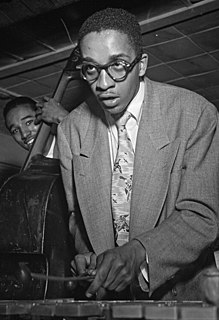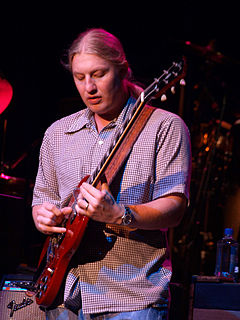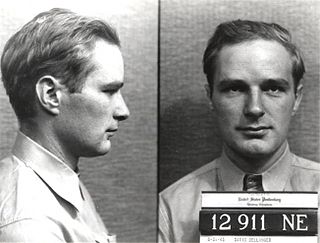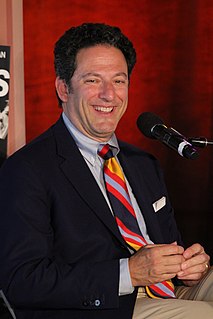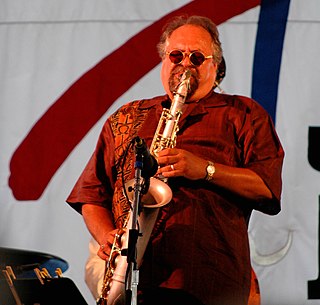A Quote by Allan Holdsworth
I grew up listening to Ravel, Debussy, Bartok and jazz like Charlie Parker, Dizzy Gillespie, Cannonball Adderley, Charlie Christian and Django Reinhart. It was incredibly inspiring! And I was given a guitar and I said 'What the hell is this?!'
Related Quotes
[Charlie "Bird" Parker] would sit down and ask [Phil Wood], "What do you think about this whole secondary Viennese school with Schoenberg, Berg and Webern? Are you listening to that music and what do you feel about it?" These were the conversations that he was having. And he also said, what he learned from Charlie Parker was, not that he studied with him in the formal sense, is that the first thing that Charlie Parker would always ask was, "Did you eat today?".
Bop began with Jazz but one afternoon somewhere on a sidewalk maybe 1939, 1940, Dizzy Gillespie or Charlie Parker or Thelonious Monk was walking past a men's clothing store on 42nd Street or South Main in L.A. and from a loudspeaker they suddenly heard a wild impossible mistake in jazz that could only have been heard inside their own imaginary head, and that is a new art. Bop.
I listened to classical music. I listened to jazz. I listened to everything. And I started becoming interested in the sounds of jazz. And I went to a concert of Jazz at the Philharmonic when we lived in Omaha, Nebraska, and I saw Charlie Parker play and Billie Holiday sing and Lester Young play, and that did it. I said, 'That's what I want to do.'
I would urge a young player to listen to Charlie Christians' sense of time ... I'll never forget listening to my father (Bucky Pizzarelli) and Tal Farlow playing Christians' 'Solo Flight' backstage at a gig... that's when it hit me how big of an effect Christian had on jazz guitar. 'Solo Flight' was like the gospel.
For Charlie and the Chocolate Factory, he came to me and said, "I want to do everything that's in the book, and as much more as you need, so that it all makes sense." I was like, "Okay!" And then, I would pitch back to him my love for Charlie Bucket's family and how lucky Charlie was, and that I felt so bad for Willy Wonka, shut up in his factory, all alone with these crazy Oompa Loompas.





